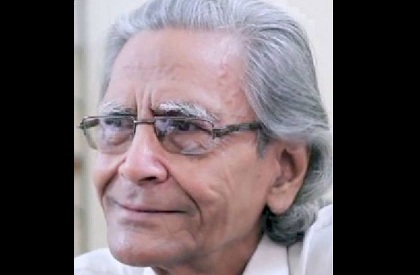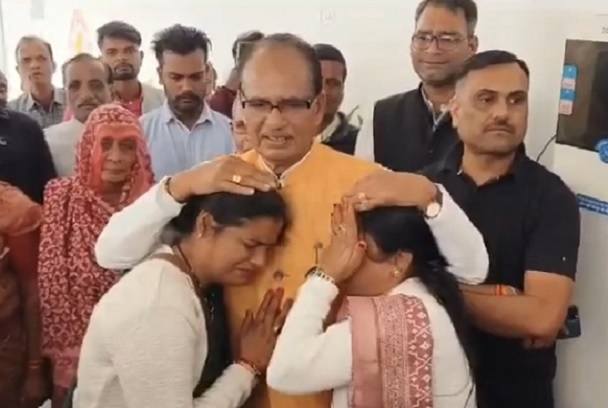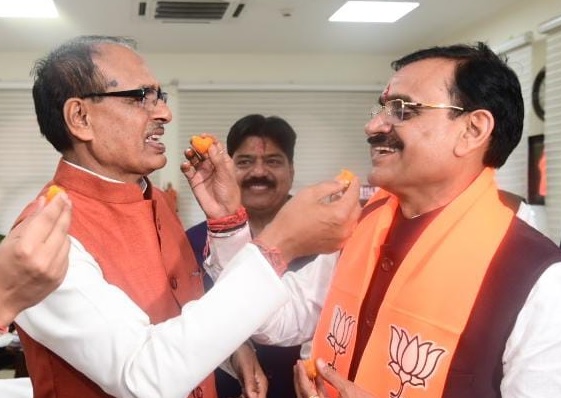135 novels, 500 stories: Interview with Urdu legend H Iqbal on a writing career spanning six decades

Shams Ur Rehman Alavi
NewsBits.in
H Iqbal, who was born in the erstwhile princely state of Rampur state in the pre-partition era, is considered one of the biggest names in Urdu writings, especially, in the field of detective fiction in both India and Pakistan. The Karachi-based author wrote over 135 novels apart from hundreds of long stories, and his works have been bestsellers in both India and Pakistan.
Such was his popularity in India, that people tried to use his name to sell novels and hence, he was forced to put up his photograph on his novels. Even after nearly six decade long writing career, he remains as agile and active. And, though he may switch from prose to poetry more at times, his creativity and imagination continue to fascinate the readers.
On his early life
Reminiscing about his childhood, he says that his family belongs to Bilgram, a famous town in Hardoi district of present day Uttar Pradesh. 'My name is Humayun Iqbal'. 'My birth place is Rampur. I spent childhood in Rampur, Delhi and Bombay (now Mumbai)".
"I was born on July 6, 1941. Bilgram was our ancestral place though my father was posted as librarian in Rampur, and I was born there. I recall a bit about other places, particularly, the short period spent in Delhi and later Mumbai where too my father edited a newspaper, and remember the journey by a ship (sea route) to Karachi after partition".
Teenage years, love for literature
When I was a teenager, I loved the poetry of Iqbal and Josh Malihabadi. And, I was more interested in literature, rather than paying attention to school curriculum. In fact, after Josh Malihabadi, came to Pakistan, on my father's insistence, he once asked me to focus on studies but I never wanted to be someone's employee.
I felt that this 'rote learning' was just a way to get a 'nine to five job' that I never wanted. I enjoyed reading, and read everything under the sun. I wrote my first novel, Mazloom Lutere, in 1960. That was the beginning of a long career in writing and soon soon I became an established author.
When Ibn-e-Safi was unwell, I wrote several novels that had the same characters Faridi-Hamid and Imran (created by Ibn-e-Safi), and he also enjoy my novels. In fact, after he recuperated, he wanted me to continue writing but I decided that now that he was back to writing in this genre, I would no longer write on similar lines and I totally changed the focus of my writings, in order to create my own way. I never kept a record of all my works. I extensively wrote for digests too for a long time.
Regarding popularity of his novels across the border
Though my novels were popular in India, I didn't have much connection with the country after I left it in my childhood. It was a strange quirk of fate, we shifted to Pakistan and after I came here, I could visit India just once. In 1980, my wife wanted me to take her to India.
So we decided to go and visited Agra, Delhi and Mumbai. My wife wished to see Taj Mahal, hence, we went to Agra, especially. I didn't tell most people about my visit though I met the Shama group owners. In India, I went to a library and saw the catalogue and found a long list of my works.
Regarding dective writing or the inevitable comparisons with Ibn-e-Safi
I would just say that I was destined to be 'second' in life always. I was the second child in the household, and from here it all began, and this continued throughout my life. But apart from this, I had a long and successful life as a writer.
I never kept a record of my writings. But it has been recorded by individuals. I wrote in Suspense and Jasoosi digests for several years. I wrote over 500 stories, the exact figure may be even higher, and also wrote under the pen name of Humayun Bilgrami.
On poetry
I have been penning poetry for a long time. Once I was returning from an ailing friend's place, and a few stanzas suddenly came on my lips. Subsequently, I began writing. However, I didn't publish my 'diwan'. Many people feel that my poetry is 'tough' to comprehend but that's my poetry, my style, and some day, I might come up with my poetry collection.










